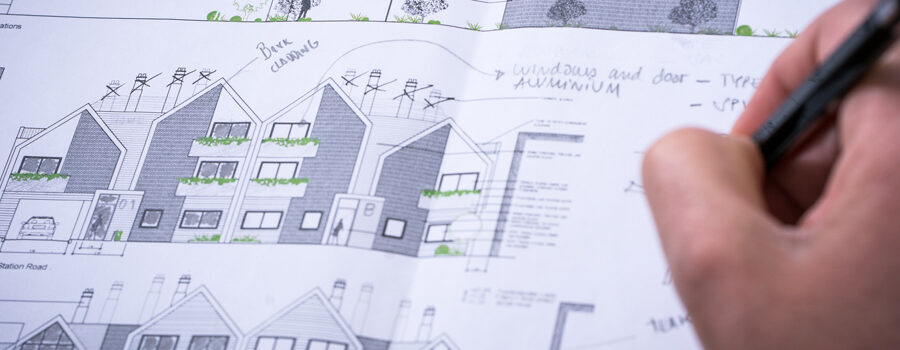What is planning permission?
Planning permission is formally-granted permission for the erection or alteration of buildings or other structural development.
Although the Portuguese Government controls national planning policy, local authorities are responsible for deciding whether to grant planning permission on a case-by-case basis.
In order to be granted planning permission, the occupier of a building also needs to be the owner. As the owner of a building or other development, it is your responsibility to seek planning permission – and to make sure it is granted before any work takes place.
What sort of projects need planning permission?
You’re likely to need planning permission if you want to build a new structure, make a major change to an existing structure, or change the use of a building.
If you’re still unsure, it’s always best to check with your local planning authority (LPA) before work begins.
What sort of projects don’t need planning permission?
Certain minor changes to your property may be covered by permitted development (PD) status. Permitted development rights allow you to extend an existing house by a certain percentage, and carry out certain improvements, without the need for planning permission.
Projects that usually have permitted development rights include:
- The erection, extension or alteration of an industrial building or warehouse
- The erection of certain adverts and signs
- Demolition work – though you must first get approval for it from your local planning authority.
It’s also possible you won’t need planning permission if your project will have no impact either on your neighbours or on the environment. However, it’s still important you check with your local authority before any work begins.
How do I apply for planning permission?
Assembling your planning application can be quite a lengthy process, so make sure you give yourself enough time. Allow 8-12 weeks to sort this out – you’ll be making important decisions that you’ll have to live with for some time.
How long does it usually take to get planning permission?
Planning applications are usually decided within twelve weeks of submission. In Portugal, a time limit can be set if cases are particularly large or complicated.
In total, from the initial design work to the decision on your planning application, the time frame could be six months or longer.
What are the main reasons I might be denied planning permission?
When council planning officials are deciding whether to grant planning permission, certain key factors are taken into account. These include:
- Whether the neighbours raise any objections
- Whether the proposed design is of good quality and in-keeping with surrounding properties
- What impact your proposed development will have on your neighbours and the environment – for example through loss of light or loss of privacy.
Remember that planning officials will take future owners of the property – and future neighbours – into account too.
They will also consider how your proposal fits in with their own local development plans. To decide this, local planners will usually look at a few key factors.
If my application for planning permission fails, what do I do next?
If your application is refused, you should first try to find a compromise with the local planning authority, by adjusting your plans to take any feedback or recommendations from them into account.
If you still can’t reach an agreement, you can launch an appeal.
What happens if I go ahead with a project without planning permission?
If you carry out work without getting planning permission, planning officers can serve you with an enforcement notice ordering you to reverse all the changes you’ve made.
It could also cause you serious problems if you ever try to sell your home: You’ll need to prove to your buyer’s solicitor that any work has been carried out in accordance with relevant planning laws.
The trouble with planning permission
It’s subjective. You are mostly at the mercy of the planners. If they don’t agree with your proposal, it will be refused – even if you feel that you’ve met the criteria set out in their design guidelines and can demonstrate that there are similar developments within your immediate area.
It’s piecemeal. Most local planning departments are over-burdened and don’t have the time to provide you with adequate pre-planning advice. High turnover of staff (we have a national shortage of qualified planners) creates major problems, especially if your planning officer leaves mid-way through the application process.
It’s emotional. Keeping neighbours up to date in person is a great way of minimising written objections to your application. There is nothing neighbours hate more than first hearing about your development plans from the council. This is often more down to concerns about noisy builders than the aesthetic merits of your proposal.

